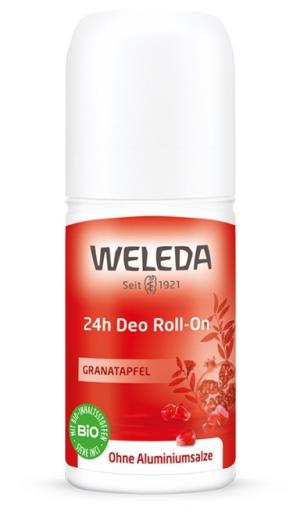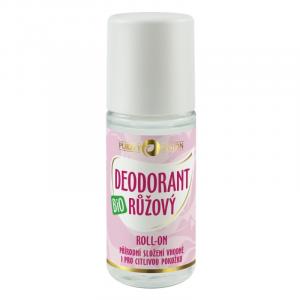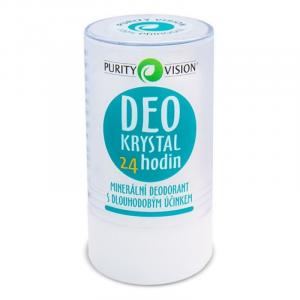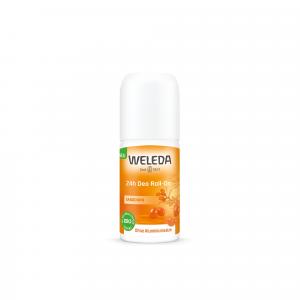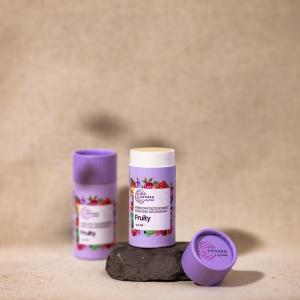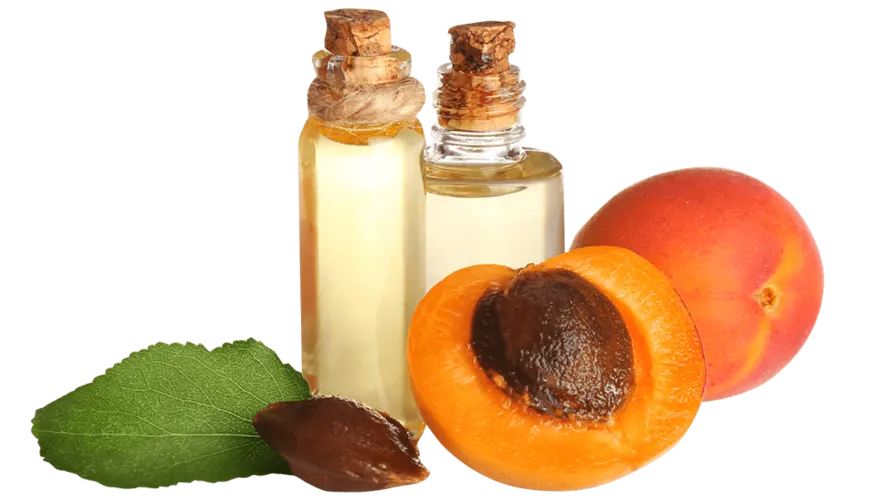
What are the benefits of deodorant vs antiperspirant for your skin

What is the difference between deodorant and antiperspirant?
When you stand in a drugstore in front of the body care aisle, it can be hard to navigate. Deodorants, antiperspirants, roll-ons, sprays, creams… The selection is endless. But the key question is: what is the actual difference between deodorant and antiperspirant? And which is better for health, hygiene, and the environment?
The difference between deodorant and antiperspirant is not just cosmetic. Each of these products works differently, targets a different problem, and has different ingredients. Understanding these differences is important not only for your comfort but also for a healthy and sustainable lifestyle.
Antiperspirant and its scent of silence
Antiperspirants are designed to block sweat. They achieve this using aluminum salts, which temporarily close the sweat glands. This prevents sweat from reaching the skin's surface, which means there's nothing to break down and cause odor. An ideal solution on paper, right?
However, the body doesn't sweat just for fun. Sweating is a natural thermoregulatory process and also a way to release toxins or respond to stress. Blocking sweat — especially long-term — can have its downsides. Some studies suggest that long-term use of antiperspirants may affect the natural microflora of the underarms and disrupt the healthy balance of bacteria on the skin. Additionally, there are discussions about possible links between aluminum compounds and health risks, although direct evidence is still lacking.
It's important to note that aluminum salts in antiperspirants do not penetrate deeply into the body, but they can cause irritation or allergic reactions in sensitive individuals. And due to the presence of these substances, alternatives have been sought.
Deodorant
On the other hand, deodorants do not prevent sweating but neutralize its odor. Sweat itself is odorless — the problem arises only when it mixes with bacteria on the skin's surface. Deodorants contain antibacterial ingredients that prevent these bacteria from multiplying, while also adding a pleasant scent.
A major advantage of deodorants is that they do not interfere with the skin's natural function. Sweating remains unaffected — the body continues to "breathe" and expels heat and toxins naturally. Deodorants are particularly popular among people who prefer natural cosmetics and want to avoid aluminum or synthetic preservatives.
Today, there is also a wide range of natural deodorants that use the power of baking soda, shea butter, coconut oil, essential oils, or zinc oxide. These ingredients not only help against odor but also protect and nourish the skin.
Try our natural products
Deodorant vs. antiperspirant
You might be asking: "So which is better? Should I sweat or not?" The answer is not black and white. It depends on your needs, lifestyle, and values.
If you work in an environment where absolute dryness is necessary — such as an office with a strict dress code or in public under pressure — an antiperspirant can provide the necessary comfort. On the other hand, if you don't mind sweating a bit and want to let your body function naturally, deodorant is a gentler choice.
An interesting compromise is some natural deodorants with a mild antiperspirant effect, which use natural absorbent ingredients like bentonite clay or cornstarch. These do not block sweat glands but help keep the underarms dry by absorbing moisture.
Natural deodorants
With the growing interest in sustainability and a healthy lifestyle, natural deodorants are coming into the spotlight. They contain no aluminum, alcohol, parabens, or synthetic fragrances — yet they work. How is that possible?
The strength of natural deodorants lies in the combination of antibacterial and absorbent ingredients that neutralize bacteria while capturing moisture. Baking soda is one of the most effective ingredients in this regard, although it can be too abrasive for sensitive skin. Alternatives include arrowroot powder, zinc oxide, or zinc ricinoleate.
Natural deodorants often smell thanks to essential oils, not chemical perfumes. This is pleasant not only for the nose but also for the skin. Additionally, they are often packaged in eco-friendly containers — glass jars, paper tubes, or metal tins that can be recycled or reused.
For example, the Czech brand used by Pavla — a mother of three and an active runner — switched to natural deodorant after regular antiperspirants started irritating her. "At first, I was skeptical because I was afraid I would feel uncomfortable. But I was surprised at how well the natural deodorant works, even when I'm running or spending the whole day outside with the kids," she says.
Is antiperspirant really harmful?
The topic of potential health risks of antiperspirants often appears in the media, especially concerning breast cancer or Alzheimer's disease. Although there is no conclusive evidence that antiperspirants cause these diseases, uncertainty and concerns remain.
For example, according to the American Cancer Society, no clinical studies have yet proven a direct link between the use of antiperspirants and the development of breast cancer. Some research has detected traces of aluminum in breast tissue, but it is unclear whether this is a cause or just a coincidence.
"When assessing risks, it is important to consider not only the composition but also the frequency and method of use," says dermatologist MUDr. Petra Novotná. "Using an antiperspirant once a week is not the same as its daily application after shaving, when the skin may be irritated and more prone to absorbing substances."
How to recognize a quality deodorant?
Whether you choose deodorant or antiperspirant, it's important to know what you're actually using. Read the ingredients on the labels and prefer products without aluminum, alcohol, parabens, and synthetic perfumes. If you're unsure, look for natural certifications like ECOCERT, COSMOS, or CPK.
If you're hesitating, you can start with a sample or smaller packaging. Some natural brands offer testers or travel sizes so you can try what truly suits you. Sometimes it takes a few days for the skin to get used to a new type of deodorant — especially if you've previously used strong antiperspirants.
A small tip in conclusion
If you decide to give natural deodorant a chance, try applying it to dry and clean skin. Ideally after a shower, when the pores are open but the skin is no longer damp. And don't hesitate to reapply during the day — natural deodorants may not last 48 hours, but they allow you to breathe — literally and figuratively.
Whatever product you choose, keep in mind: it's not just about what works, but also how it affects your body, the planet, and your daily well-being. Because sometimes even a simple step, like choosing a deodorant, can be a small act of care — for yourself and the world around us.
